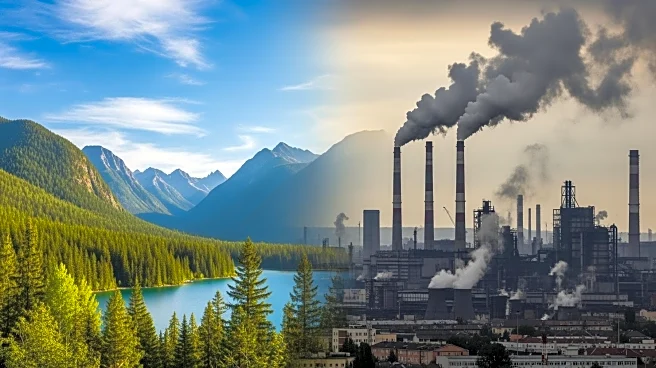What's Happening?
Fossil fuels, comprising coal, oil, and natural gas, are integral to modern energy production, transportation, and industry. These non-renewable resources are formed from ancient organic matter subjected
to heat and pressure over millions of years. Despite their critical role in powering economies, fossil fuels are associated with significant environmental and health impacts, including greenhouse gas emissions, air and water pollution, and ecosystem degradation.
Why It's Important?
The extensive use of fossil fuels has facilitated industrial growth and improved living standards globally. However, the environmental and health costs are substantial, with fossil fuel combustion being a leading contributor to climate change and air pollution. The transition to sustainable energy sources is crucial to mitigate these impacts, but it requires significant investment and policy support. The shift also poses challenges for economies reliant on fossil fuel industries, necessitating strategies for economic diversification and workforce transition.
What's Next?
Efforts to reduce fossil fuel consumption are gaining momentum, with increased focus on energy efficiency, renewable energy adoption, and technological innovations in carbon capture. Policymakers are implementing regulations to curb emissions and promote cleaner energy alternatives. The transition is expected to reshape energy markets and influence global economic and geopolitical dynamics.
Beyond the Headlines
The move towards sustainable energy involves complex ethical and social considerations, including the need for just transitions for workers in fossil fuel industries and ensuring energy access for all. The shift also highlights the importance of international cooperation in addressing climate change and promoting sustainable development.









